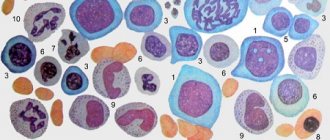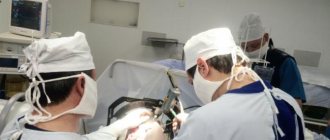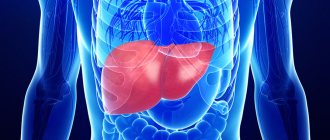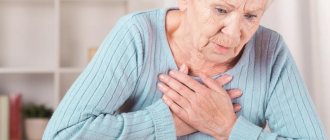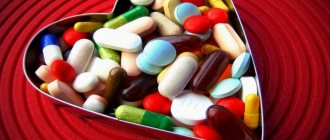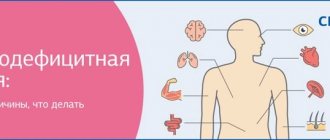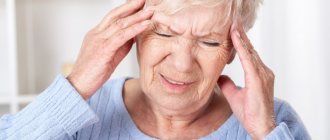Anemia (or anemia) is a condition in which the concentration of hemoglobin in the blood decreases and, accordingly, the number of red blood cells - blood cells that carry oxygen to organs and tissues and remove carbon dioxide from them.
This happens in the vast majority of cases when iron deficiency occurs. Because of this, hemoglobin molecules, which are the most important part of red blood cells, cease to be formed in the required quantity.
Iron is an essential element in red blood cells; it is what holds oxygen molecules in order to transport it from the lungs to every cell of the body.
As a result, the transport function of the blood is disrupted: the reduced number of red blood cells cannot cope with the saturation of all cells with oxygen, and hypoxia (oxygen starvation) occurs. This threatens the development of a large number of pathologies, because from a lack of oxygen and an excess of unremoved carbon dioxide, all organs suffer, and first of all the brain, heart, liver, and the immune system is greatly suppressed.
Symptoms of anemia
The initial form of anemia hardly manifests itself as alarming symptoms. However, as iron deficiency increases in the body, the following complaints of a rather general nature appear:
- Severe weakness
- Increased fatigue
- Pale skin and sclera
- Exercise-related dyspnea
- Headache
- Dizziness
- Tachycardia
- Decreased appetite
- Discomfort in the stomach area
- Belching
- Stool disorders
More specific symptoms characteristic of moderate to severe anemia are:
- Violation or change in taste preferences (desire to eat clay, ice, starch, chalk, lime, paper, toothpaste, etc.)
- Glossitis (inflammation of the tongue)
- Dry mouth
- Hair loss, brittleness and peeling of nails
- Angulitis (cracks in the corners of the mouth)
- Stomatitis
- Multiple caries
- and others.
Causes of anemia
A decrease in iron content in the body can occur due to many reasons. However, the following factors stand out:
- Insufficient intake of iron from food
- Unbalanced diet
Vegetarian diet
- Poor appetite and malnutrition
- Strict diets and fasting
- Acceleration of iron consumption processes in the body
- Periods of increased growth in children and adolescents
Pregnancy
- Lactation period
- Sports activities
- Chronic and acute blood loss
- Periods of increased growth in children and adolescents
Pregnancy
- Lactation period
- Sports activities
- Iron absorption disorders
- Diseases of the gastrointestinal tract
Worm infestations
- Hormonal imbalances
- Various diseases
- Deficiency in the diet of substances that ensure the absorption of iron from food (protein, ascorbic acid, B vitamins)
How to eat if you have anemia
Meals for anemia should be divided, 4-6 times a day . The last evening meal no later than 2 hours before bedtime . The protein content in the diet is usually increased to 110-120 g per day, and fast carbohydrates (sugar, confectionery, baked goods) are limited.
Particular attention is paid to minimizing the amount of saturated animal fat, which reduces iron absorption. Restrictions also apply to salt consumption (up to 6 g per day).
It is best to cook dishes by steaming, boiling, stewing and baking. Everything fatty, smoked, spicy, salty and spicy is excluded from the diet. You need to drink enough fluid, about 1.5 liters per day.
Fully or partially limited products
Fatty meats and fish, animal and cooking fat, culinary, spices, cakes and cream pies, fatty and hot sauces are completely excluded from the diet.
Limit foods rich in calcium (parsley, milk and dairy products), tannin and caffeine (strong tea, coffee, Coca-Cola, chocolate) as they slow down the absorption of iron.
Alcohol intake is completely excluded, since ethyl alcohol affects the liver and disrupts the absorption of flavocins and iron.
Table of prohibited products
| Proteins, g | Fats, g | Carbohydrates, g | Calories, kcal | |
Nuts and dried fruits | ||||
| nuts | 15,0 | 40,0 | 20,0 | 500 |
Cereals and porridges | ||||
| wheat bran | 15,1 | 3,8 | 53,6 | 296 |
Confectionery | ||||
| cake | 3,8 | 22,6 | 47,0 | 397 |
Chocolate | ||||
| chocolate | 5,4 | 35,3 | 56,5 | 544 |
Raw materials and seasonings | ||||
| mayonnaise | 2,4 | 67,0 | 3,9 | 627 |
Dairy | ||||
| milk | 3,2 | 3,6 | 4,8 | 64 |
| sour cream 30% | 2,4 | 30,0 | 3,1 | 294 |
Cheeses and cottage cheese | ||||
| cheese | 24,1 | 29,5 | 0,3 | 363 |
Meat products | ||||
| pork fat | 1,4 | 92,8 | 0,0 | 841 |
Oils and fats | ||||
| cooking fat | 0,0 | 99,7 | 0,0 | 897 |
| rendered pork fat | 0,0 | 99,6 | 0,0 | 896 |
Alcoholic drinks | ||||
| white dessert wine 16% | 0,5 | 0,0 | 16,0 | 153 |
| vodka | 0,0 | 0,0 | 0,1 | 235 |
| cognac | 0,0 | 0,0 | 0,1 | 239 |
| liquor | 0,3 | 1,1 | 17,2 | 242 |
| beer | 0,3 | 0,0 | 4,6 | 42 |
Non-alcoholic drinks | ||||
| cola | 0,0 | 0,0 | 10,4 | 42 |
| coffee | 0,2 | 0,0 | 0,3 | 2 |
| Pepsi | 0,0 | 0,0 | 8,7 | 38 |
| black tea | 20,0 | 5,1 | 6,9 | 152 |
| energy drink | 0,0 | 0,0 | 11,3 | 45 |
| * data is per 100 g of product | ||||
Menu for anemia
If you have anemia, it is important to include foods that are dietary sources of iron in your menu. However, it is equally important to use substances in the diet that improve the absorption of iron into the body. It is known that the presence of acids in foods (ascorbic, succinic, citric, etc.) activates the processes of iron absorption.
And these substances worsen them:
- Phytates
- Phosphates
- Carbonates
- Polyphenols
- Calcium
- Tannin
Iron is found in many foods, but the degree of its absorption varies. Iron is absorbed best from beef, a little worse from poultry and fish. Iron from liver, eggs, dairy products and grains has the smallest percentage of absorption. The best plant sources of iron, due to the presence of ascorbic and other acids in the composition, are:
- Cabbage (fresh and pickled)
- Carrot
- Potato
- Pumpkin
- Tomatoes
- Beet
List of foods and dishes recommended and undesirable for anemia:
Foods that reduce iron absorption:
- Whole cow's milk
- Cheese
- Eggs
- Bran
- Alimentary fiber
- Tea coffee
Foods that contain iron and increase its absorption:
- Lean meat, poultry
- Liver
- Fish
- Seafood
- Cereals (buckwheat, millet, barley, oatmeal)
- Freshly squeezed fruit juices (in moderation)
- Fruits and berries (blueberries, currants, peach, persimmon, quince, raw or baked apples)
Authorized Products
Diet therapy is based on the inclusion in the diet of foods containing the maximum amount of heme iron: red meat (beef), offal (beef tongue, beef and chicken liver, chicken stomachs and hearts), meat products (sausage, ham, frankfurters), fish and fish products , seafood, butter and vegetable oil.
Soups and first courses are prepared in rich meat or fish broth.
Among dairy products, it is recommended to include low-fat fermented milk products and cottage cheese in the diet.
To prepare a side dish, you can use various types of cereals and pasta.
It is allowed to include in the diet various vegetables and fruits in any culinary preparation, especially those with a high content of ascorbic acid (citrus fruits, black currants, rose hips, chokeberries), as well as dried fruits - raisins, dried apricots, figs, prunes, sunflower seeds, pumpkins.
Dark honey is especially useful, since the copper, iron, manganese and fructose it contains increases the absorption of iron in the intestines. It is preferable to consume dark varieties of honey as they contain more.
For drinks, you should drink rosehip decoction, vegetable and fruit juices, and mineral water.
Table of permitted products
| Proteins, g | Fats, g | Carbohydrates, g | Calories, kcal | |
Vegetables and greens | ||||
| boiled cauliflower | 1,8 | 0,3 | 4,0 | 29 |
| boiled potatoes | 2,0 | 0,4 | 16,7 | 82 |
| boiled carrots | 0,8 | 0,3 | 5,0 | 25 |
| salad pepper | 1,3 | 0,0 | 5,3 | 27 |
| boiled beets | 1,8 | 0,0 | 10,8 | 49 |
| dill | 2,5 | 0,5 | 6,3 | 38 |
Fruits | ||||
| apricots | 0,9 | 0,1 | 10,8 | 41 |
| oranges | 0,9 | 0,2 | 8,1 | 36 |
| cherry | 0,8 | 0,5 | 11,3 | 52 |
| grapefruit | 0,7 | 0,2 | 6,5 | 29 |
Berries | ||||
| cranberry | 0,5 | 0,0 | 6,8 | 26 |
| gooseberry | 0,7 | 0,2 | 12,0 | 43 |
| Rowan | 1,5 | 0,1 | 10,9 | 50 |
| currant | 1,0 | 0,4 | 7,5 | 43 |
| rose hip | 1,6 | 0,0 | 14,0 | 51 |
Nuts and dried fruits | ||||
| prunes | 2,3 | 0,7 | 57,5 | 231 |
Cereals and porridges | ||||
| buckwheat (kernel) | 12,6 | 3,3 | 62,1 | 313 |
| oat groats | 12,3 | 6,1 | 59,5 | 342 |
| cereals | 11,9 | 7,2 | 69,3 | 366 |
| Wheat groats | 11,5 | 1,3 | 62,0 | 316 |
Bakery products | ||||
| wheat bread | 8,1 | 1,0 | 48,8 | 242 |
| whole grain bread | 10,1 | 2,3 | 57,1 | 295 |
Confectionery | ||||
| jam | 0,3 | 0,1 | 56,0 | 238 |
Raw materials and seasonings | ||||
| honey | 0,8 | 0,0 | 81,5 | 329 |
Dairy | ||||
| kefir 3.2% | 2,8 | 3,2 | 4,1 | 56 |
| cream 15% (low fat) | 2,3 | 15,0 | 3,6 | 161 |
| sour cream 15% (low fat) | 2,6 | 15,0 | 3,0 | 158 |
Cheeses and cottage cheese | ||||
| cottage cheese | 17,2 | 5,0 | 1,8 | 121 |
Meat products | ||||
| lean pork | 16,4 | 27,8 | 0,0 | 316 |
| pork liver | 18,8 | 3,6 | 0,0 | 108 |
| beef | 18,9 | 19,4 | 0,0 | 187 |
| beef liver | 17,4 | 3,1 | 0,0 | 98 |
| calf liver | 19,2 | 3,3 | 4,1 | 124 |
| mutton | 15,6 | 16,3 | 0,0 | 209 |
| rabbit | 21,0 | 8,0 | 0,0 | 156 |
| ham | 22,6 | 20,9 | 0,0 | 279 |
| liver pate | 11,6 | 28,9 | 2,5 | 317 |
| beef stew | 14,1 | 17,4 | 0,0 | 214 |
Sausages | ||||
| smoked sausage | 16,2 | 44,6 | 0,0 | 466 |
| blood sausage | 9,0 | 19,5 | 14,5 | 274 |
| beef sausages | 11,4 | 18,2 | 1,5 | 215 |
Bird | ||||
| chicken liver | 20,4 | 5,9 | 1,4 | 140 |
| turkey | 19,2 | 0,7 | 0,0 | 84 |
| turkey liver | 19,5 | 22,0 | 0,0 | 276 |
| goose liver | 15,2 | 39,0 | 0,0 | 412 |
Eggs | ||||
| chicken eggs | 12,7 | 10,9 | 0,7 | 157 |
Fish and seafood | ||||
| brown algae | 1,7 | 0,6 | 8,3 | 43 |
| pink salmon | 20,5 | 6,5 | 0,0 | 142 |
| Red caviar | 32,0 | 15,0 | 0,0 | 263 |
| cod roe | 24,0 | 0,2 | 0,0 | 115 |
| pike caviar | 17,3 | 2,0 | 0,0 | 87 |
| squid | 21,2 | 2,8 | 2,0 | 122 |
| shrimps | 22,0 | 1,0 | 0,0 | 97 |
| salmon | 19,8 | 6,3 | 0,0 | 142 |
| mussels | 9,1 | 1,5 | 0,0 | 50 |
| seaweed | 0,8 | 5,1 | 0,0 | 49 |
| herring | 16,3 | 10,7 | — | 161 |
| cod (liver in oil) | 4,2 | 65,7 | 1,2 | 613 |
| trout | 19,2 | 2,1 | — | 97 |
Oils and fats | ||||
| vegetable oil | 0,0 | 99,0 | 0,0 | 899 |
| butter | 0,5 | 82,5 | 0,8 | 748 |
| olive oil | 0,0 | 99,8 | 0,0 | 898 |
| * data is per 100 g of product | ||||
The importance of protein in anemia
The main cause of anemia is insufficient synthesis in the body of hemoglobin molecules that make up red blood cells - erythrocytes. Hemoglobin is a protein whose complex structure contains iron atoms. Therefore, a prerequisite for the formation of hemoglobin molecules is the presence in the body of these two components in sufficient quantities - protein and iron. Without each of them, hemoglobin simply will not have anything to “build” from.
Consequences of not following the diet
The consequences of iron deficiency anemia include progression of the disease. Very low hemoglobin can cause:
- myodystrophy;
- atrophy of the mucous membranes of the digestive tract, genital organs and respiratory system.
In addition, low hemoglobin levels affect the cardiovascular system and lead to the development of pathological conditions. We should not forget about the weakening of the immune system, which is fraught with the occurrence of various infectious diseases.
Diso Nutrimoon
Protein for treatment and rehabilitation
An easily digestible, tasteless protein mixture, a source of proteins and amino acids necessary for the body to fight illness, recover from injuries, illnesses and operations.
More details
Scientists have long established that the absorption of iron requires the presence of several factors: ascorbic acid, B vitamins and a sufficient amount of protein.
It is the transferrin protein that is responsible for the absorption of iron in the intestine and its transfer to the site of hemoglobin synthesis. If there is not enough protein in the diet, iron absorption will be significantly reduced. That is, protein is needed both for the absorption of iron and directly for the synthesis of hemoglobin.
Prevention
WHO experts formulated the main dogmas of preventive measures aimed at reducing the prevalence of iron deficiency anemia among the population. The main ways to achieve this goal are considered to be: eating food enriched with an easily digestible form of iron; the use of agents that help improve iron absorption; treatment of chronic foci of infections. In addition, the prevention of iron deficiency anemia is divided into primary, secondary and, accordingly, tertiary. The goal of the primary is to eliminate the main factor contributing to anemia in the body, the secondary is to promptly identify signs, correctly diagnose and treat the disease in a timely manner. The goal of tertiary prevention is to minimize possible complications.
In the vast majority of cases, iron deficiency anemia can be successfully corrected, and the signs and symptoms of anemia recede. However, if left untreated, complications develop and the disease progresses. If a person has a low level of hemoglobin, then it is necessary to undergo a full clinical and laboratory examination and identify the cause of anemia. A correct diagnosis is the key to successful treatment.
Diso Nutrimun for anemia
With anemia, it is important to take care of both the quantity of protein and its quality. The most useful protein will be one that is highly bioavailable. In addition, it is fundamentally important that protein products do not contain animal fats and other components that reduce the absorption of iron.
Traditional food products containing complete animal proteins, unfortunately, do not fully meet these requirements. Therefore, including the Diso Nutrimun protein mixture in dishes is an ideal solution for getting protein that is beneficial for anemia.
What is Nutrimun?
Nutrimun protein mixture contains concentrated milk proteins, which have the highest biological value and are easily digestible. Nutrimun protein is balanced in amino acid composition, which makes its biological value the highest.
Nutrimun protein mixture is a real help in providing the body with protein in case of many digestive disorders, when you have to follow a special restrictive diet, eat frequently and in small portions.
How does he help?
Nutrimun is a protein that can be easily digested even with a lack of digestive enzymes, will also be easily absorbed by the body and will bring maximum benefit. Use Nutrimun along with traditional foods in the diet prescribed by your doctor, add it to any food and drink.
Nutrimun, as an additional source of complete protein, will definitely help speed up your recovery and restore impaired functions. Diso Nutrimun does not contain saturated animal fats or substances that reduce iron absorption, which distinguishes it from other protein products.

